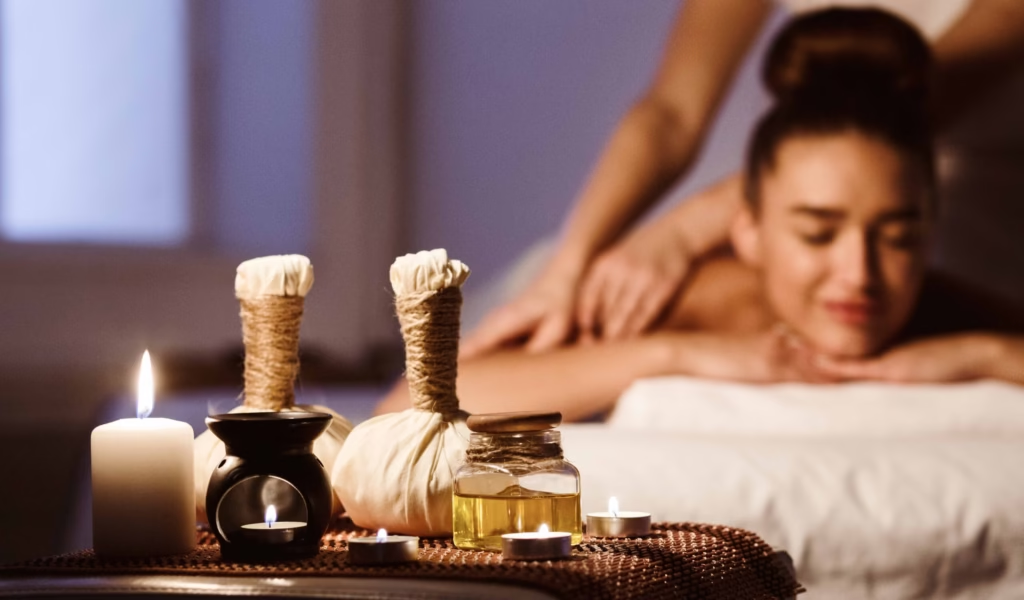
Introduction
- What is aromatherapy?
Ever enter a room and suddenly relax due to some particular odor? Or catch a whiff that instantly stimulates and regenerates your senses? That’s the magic of aromatherapy—a centuries-long practice that leverages the therapeutic effects of scent. It’s not simply nice smells; it’s about actual, concrete benefits of well-being from the most natural form of nature: essential oils.
- Why it’s gaining popularity in wellness practices
Aromatherapy has become a phenomenon as people turn more and more to natural, drug-free ways to ease stress, boost mood, and improve overall well-being. From sprays of pillow lavender to peppermint oils that improve concentration, the applications appear endless. There is, however, real science behind the aroma. The right aroma can calm a troubled heart, sharpen concentration, or bring on sound, restful sleep.
Here, in this book, we’re going to guide you into the wonderful world of aromatherapy—everything from the science behind how it works to the oils to get started with and to use safely in your life. Are you prepared to tap into the restorative power of fragrance? Let’s begin.
The Science Behind Aromatherapy
It may feel like magic that a smell can make you feel something, but it’s really based on biology. Aromatherapy works by activating your sense of smell, leveraging the link between the brain and scents.—The connection between the brain and smell. When inhaled, essential oil molecules travel from the nose to the olfactory bulb, bypassing the brain and directly reaching the limbic system, the area responsible for emotions.
- How scents affect the brain and body Olfactory system and limbic connection
This is due to the fact that certain odors may make you recall something, create a certain mood, or change your mood instantly. The limbic system controls heart rate, blood pressure, breathing, memory, stress, and hormonal balance. So when you inhale lavender and become relaxed, or inhale citrus and become energized, it’s your brain responding to chemical communications from the essential oils.
Functional MRI and EEG scan scientific studies have established that aromatherapy has an impact on brain wave activity, namely in the alpha and theta frequency bands—relaxation and creativity. It has an impact on cortisol levels (the stress hormone), reduces the heart rate, and even improves cognitive function.
This mind-body link accounts for how aromatherapy has become such an effective tool in integrative medicine, psychology, and even corporate wellness programs. It’s simple, affordable, and non-invasive, making it accessible to almost anyone.

Benefits of Aromatherapy
Aromatherapy has a broad variety of benefits that extend far beyond simply smelling something pleasant. It’s a versatile practice that promotes physical as well as mental well-being. Now, let’s explore its key benefits:
Physical Health Benefit
- Pain Relief: Eucalyptus, ginger, and clove oils help to relieve muscle tension and joint pain.
- Improved Sleep: Lavender, chamomile, and sandalwood induce good sleep by soothing the nervous system.
- Improved Digestion: Fennel and peppermint can soothe indigestion and bloating.
- Respiratory Support: Eucalyptus and tea tree oil work wonders to clear the sinuses and reduce inflammation.
- Boosted Immunity: Certain oils have antibacterial and antiviral compounds that protect against disease.
Mental and Emotional Gains
- Stress Relief: Inhaling soothing oils such as lavender and bergamot reduces cortisol and calms the mind.
- Mood Boost: Orange and lemon citrus oils lift your mood and stimulate your body.
- Increased Concentration: Peppermint and rosemary improve the mental condition and enable concentration and memory.
- Anxiety Relief Relaxation: Frankincense and ylang-ylang are often used in meditation because they both have grounding functions.
Aromatherapy is really a toolkit for health. You can tailor your use of oils to your needs—whether relaxing, fighting a cold, or getting a mental edge for work or school.

Essential Oils 101
- What are essential oils?
At the heart of aromatherapy are essential oils—extremely concentrated plant extracts that contain the plant’s fragrance and healing properties. They’re termed ‘essential’ because they capture the core fragrance and therapeutic qualities of the plant.
- How They Produce Essential Oils
Essential oils are typically extracted through distillation or cold pressing. Distillation is a process where steam is used to distill oil from plant material. Cold pressing involves mechanically extracting oil from citrus peel without the use of heat.. The product is a concentrated oil that can be hundreds of times more concentrated than the plant itself.
- Storing Your Oils Since essential oils are volatile and can spoil with time, it’s necessary to keep them stored properly:
- Keep in dark glass containers, such as cobalt blue or amber bottles, to protect from light exposure.
- Store in a cool, dry location, away from sunlight and heat.
- Always close the caps tightly to prevent oxidation.
- Essential oils should never be taken internally except under the supervision of a professional practitioner, and some need to be diluted in a carrier oil (like coconut or jojoba oil) before application to the skin.

Top Healing Essential Oils and Their Uses
Don’t know where to start? Here are some of the most well-known and powerful healing and energizing essential oils, each with its own unique qualities:
Lavender
- Uses: Sleep, relaxation, minor burns, skin irritation
- Aroma: Slightly floral-soothing
- Usage: Use at bedtime, put on temples, mix with bath
Peppermint
- Uses: Headaches, fatigue, digestion
- Odor: Fresh, cooling
- Application: Inhale for alertness, dilute for neck/temple massage
Eucalyptus
- Uses: Cough, congestion, respiratory issues
- Smell: Fresh, pungent
- Application: Chest rub, diffuser, steam inhalation
Tea Tree
- Applications: Acne, fungal infection, antibacterial
Odor
- Use: Spot treatment (diluted), home-made cleansers.
Lemon
- Uses: Mood uplift, purification, and energizing.
Fresh citrus.
- Usage: Spray in the morning, combine with homemade sprays.
These oils are used for different purposes and can be added to your daily health kit.




